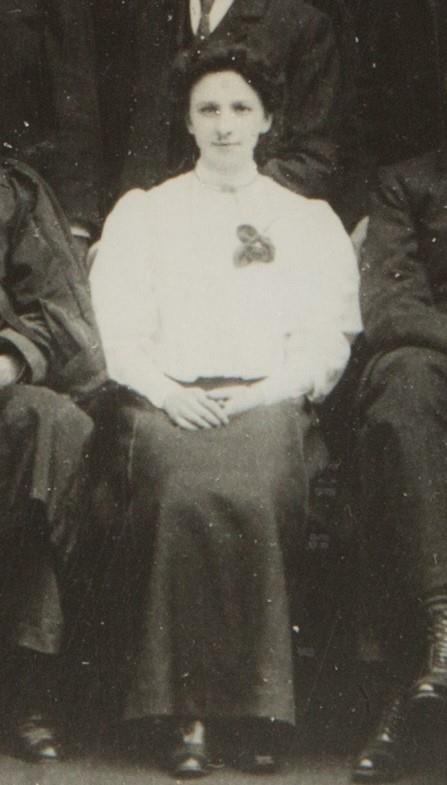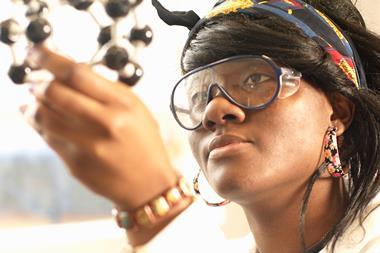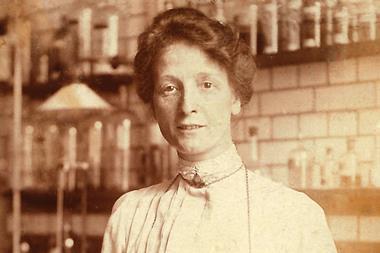Human qualities, not big discoveries, are what we should seek from role models

What makes a role model in chemistry? Someone to look up to and aim to be a bit more like? Is it about the chemistry profile, the vision, the courage to make great leaps forward in science? Across science journalism we love to celebrate big discoveries. We put high profile role models in front of students and the public all the time, in the media and through outreach programmes. But perhaps their status is not what we should be emphasising.
Across my teaching roles I work with students from age 12 through to postgraduate. When young people apply for degree courses their personal statements tell us about their desire to cure disease and discover the next wonder material. This is invariably what they think we want to hear. However in person, their academic and pastoral interactions tell a different story. Most aspire to a fairly ordinary scientific life. They want a job with security, a decent salary, something that will help them to build a life, buy a house, start a family. As they progress through their degrees, some become disillusioned with the subject they chose at a relatively young age and then feel like failures. Some find they no longer enjoy lab work or have found passions outside of chemistry, others feel they are simply not ‘good enough’. They want a good job, and a nice life, but not necessarily a science life.
Model researchers
A few years ago the science writer Kit Chapman took to Twitter to ask scientists for their chemistry role models; chemists working today who they wished they were more like. We might expect to see the famous names, Nobel prize winners, maverick chemists pushing the boundaries of science, but this wasn’t the case. The adults who responded to Chapman’s tweet, mainly with science backgrounds, didn’t aspire to be more like the media superstars and prizewinners – they valued character attributes like support, mentorship, creativity and kindness.
Even for the very biggest names, their human stories make a huge impact on those of us who make up the rank and file of the chemistry community. That Fraser Stoddart, winner of the 2016 Nobel prize in chemistry, typed up all of his wife’s PhD thesis on a typewriter is a fact that is far more memorable to me than any insight into his research (certainly no man has ever loved me enough to do something so laborious!)
Role models are a key feature of many campaigns to get young people interested in science. However, research from the University of Exeter suggests that role models have no significant effect on the uptake of Stem subjects in later education. This made me think about what we showcase to young people when we aim to encourage them into Stem subjects. While there will always be a place for showcasing the latest research and big discoveries, perhaps we should do more to emphasise the human sides of scientists. This might show young people that a career in science can also include all the other things they might aspire to, such as a family or a time-consuming hobby. By emphasising the ordinary, we may be able to inspire more young people to choose chemistry degrees.
Moreover, there are people with backgrounds in chemistry who make huge contributions in all areas of life. In some work researching our alumni at the University of Manchester I found out about Rona Robinson, the first woman to graduate with a first class honours degree in chemistry in the UK. In doing so she broke down barriers for all the women who followed. After a brief period teaching science and maths she progressed to a long career in the dye industry. Her name is on a few patents but she made no really huge discoveries. However, she was also a suffragette and was arrested a number of times, including during a protest at the opening of the new chemistry labs at Manchester. An ordinary life in chemistry but an extraordinary life in such a key moment in history.
Chemistry graduates are highly regarded in so many areas but we rarely showcase that, perhaps thinking that we are somehow betraying our subject in a small way if we do. Prime ministers and presidents, astronauts and a former head of analytics at Google share a background in chemistry as well as countless accountants, civil servants and teachers. We know that applications to study chemistry degrees have been declining in recent years despite its popularity in schools. Perhaps if we talk more about the versatility of a chemistry degree, the doors it opens and how compatible chemistry can be with a normal, nice, life, we might have greater success in selling our subject.












No comments yet